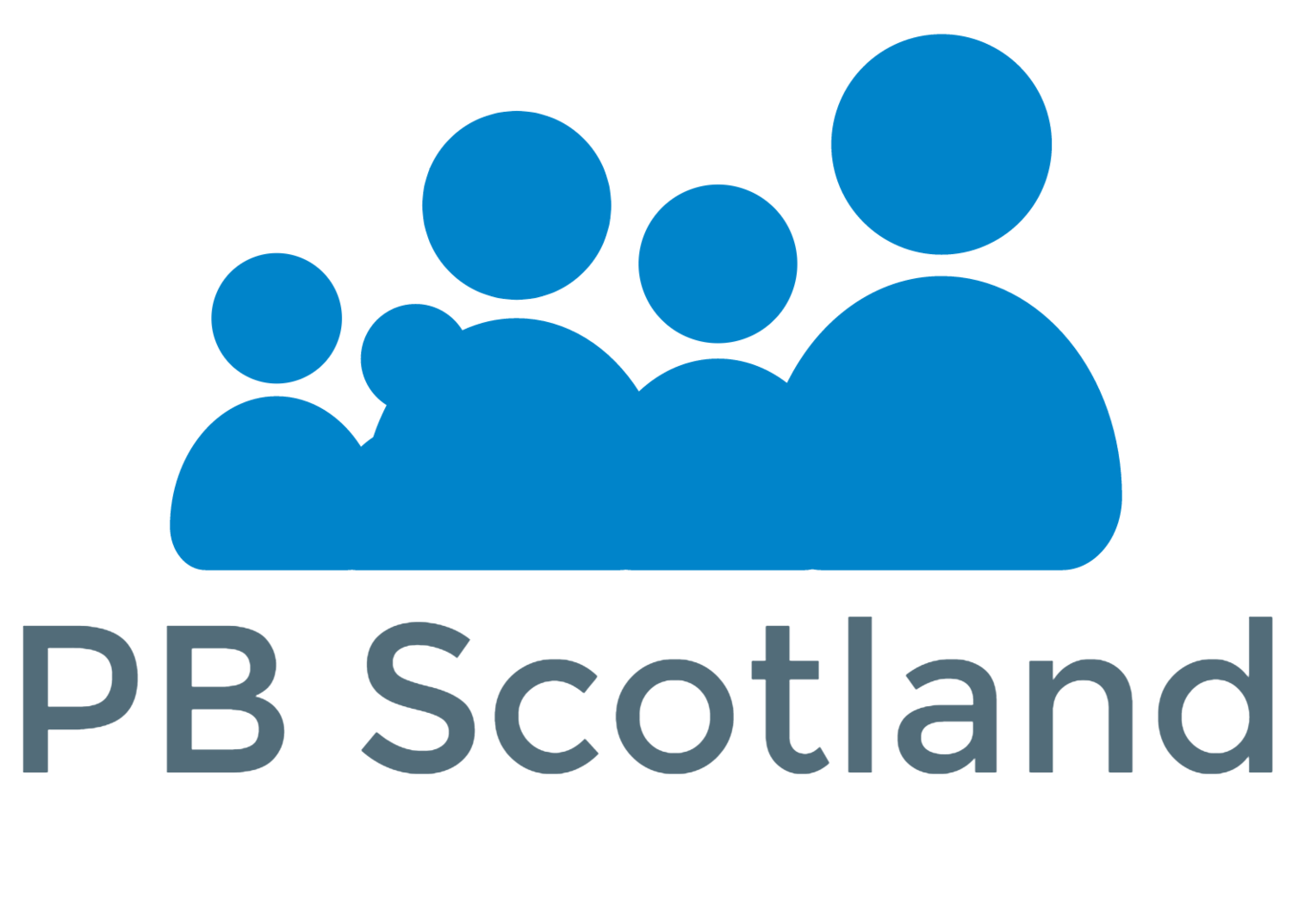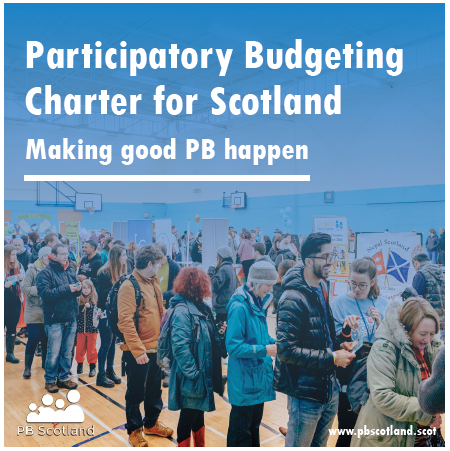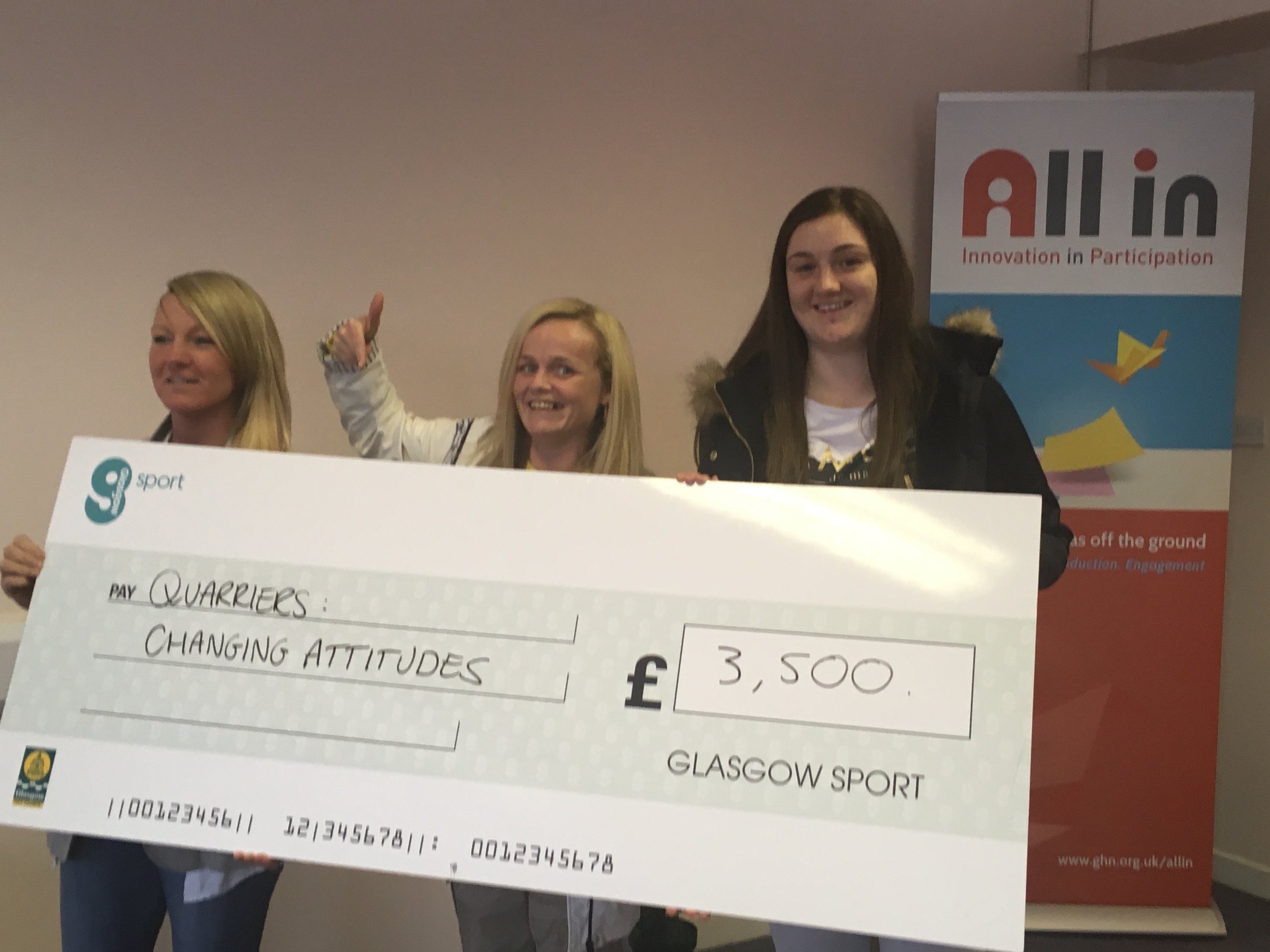"Trust was the key word": Homelessness support through PB
/Here, David Reilly shares his thoughts about a recent PB process which saw people experiencing homelessness decide on the best support for them.
I was one of the 80,000 people who attended the 2016 Homeless World Cup in Glasgow. I loved the football, the positive atmosphere and the chance to see and mingle with teams of players from across the world. I took my primary age kids to one of the games and Zimbabwe bring on a sub.
“Dad, who’s that guy? He’s not African”.
Ah, here’s a learning opportunity I think, and launch into my spiel about how just like not all Europeans are white, not all Africans are black. During which I look closer:
“Wait a minute - that guy looks like he’s from Glasgow. In fact, I know him, that’s Joe from Sandyhills!”
Joe, who I knew from Sandyhills Community Organisation, was an extra player supplied through Street Soccer Scotland. Fitting right into the team Joe scored a cracking goal but struggled to blend into the post-match Zimbabwean celebration song and dance – deciding in the end to just bust some techno moves when it was his turn in the middle!
The Glasgow Life Homeless World Cup Legacy project was so well organised it ended up with a £10,500 underspend. Glasgow Life offered the money back to the funders, but Big Lottery Fund Scotland “for our first time ever" said no. Instead, they decided to trust people with lived experience of homelessness to follow a Participatory Budgeting approach to work with the organisations that support them to come up with ideas and vote on where this money should go.
This made for a really interesting take on PB. Together, people came up with voting rules that saw each organisation nominating three voters, two of whom are homeless people and one is a person working to support them. Each voter listened to a pitch before picking their 1st, 2nd and 3rd favourite idea.
The Simon Community used this as an opportunity to work equally with people living in their services to work up activity ideas, researching costs and availability, the difference these would make, writing these out and presenting them. With lots of learning along the way this was a lovely example of ‘co-production’ in miniature.
For some, this was the first time they had ever spoken in front of other people. Presentations were rarely polished, some were raw and emotional. One person spoke about being an addict for over thirty years. Another, presenting alongside Street Soccer Scotland, played in the Homeless World Cup and had suggestions for protecting people from a post tournament ‘come down’. We were told that people were overwhelmed by being asked for his ideas for the first time; they felt trusted. Trust was the key word.
Well done to our successful applicants as part of our @glasgowlife HWC Legacy Project -Participatory Budgeting session @BIGScotland @quarriers @MungoFoundation @h4th_thursday8 @ThistleTrust @homelesswrldcup pic.twitter.com/RMlYpHANmW
— Glasgow Sport (@Glasgow_Sport) February 21, 2018
With the money left over from the project that trust was rewarded. Rather than £10,500 being handed back to accountants real experts came together and decided to use that money instead for:
Workshops in the community and schools, delivered with Quarriers Inclusion and people experienced in homelessness that will prevent homelessness.
Help for the Homeless – who are giving immediate support to those in need.
The Partick Thistle Trust – using football help people in recovery regain meaning in their life.
The Mungo Foundation – creating a Skills Kitchen to build skills that will help people move on from homeless accommodation.
With the Big Lottery Scotland involved along with homeless support organisations immediate help available to support projects not funded, keeping ideas alive.
I was inspired by Barbara (pictured, centre) telling us about her community workshops idea, “as a homeless person” she said, “I can think of no better person than me to help people stay out of homelessness”.
And I can think of no better people to decide how support for homeless people should be delivered.








